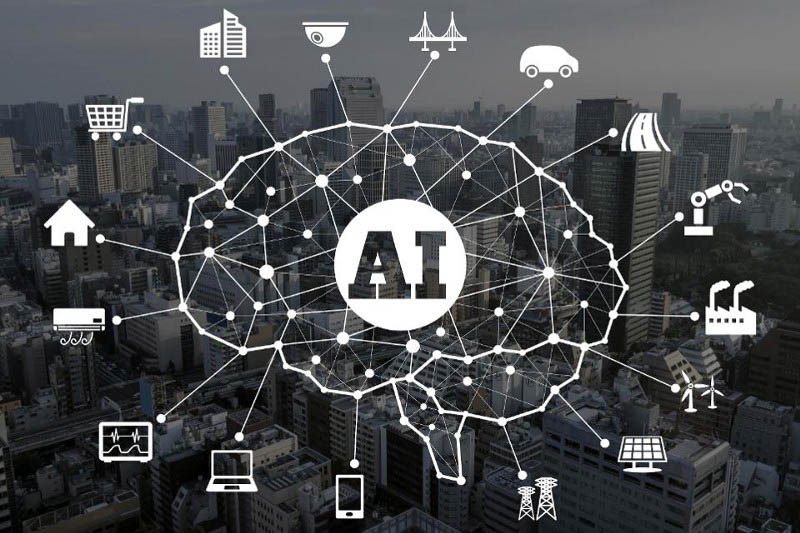When the average person thinks of artificial intelligence (AI), they often think of that one movie where human-like robots try to take over the world (thanks, The Terminator). However, this is such a singular and one-note view of AI.
What is Artificial Intelligence?
AI is the umbrella concept for the capability of machines to be able to perform and behave intelligently. Artificial intelligence and machine learning are terms that are often used interchangeably.
What is Machine Learning?
However, machine learning (ML) is actually an application of AI that involves equipping computer systems with data so that they can “learn.”
The endless potential of AI and how it can improve and revolutionize many industries is no secret. For the real estate industry, AI/ML is highly useful for automated valuation of homes for homebuyers or advanced image search. For the finance industry, AI/ML integration is applicable for better risk assessment and fraud detection.
Source: Towards Data Science
One industry that AI is able to flourish and succeed in is marketing. The sheer intelligence that AI/ML systems provide is the main catalyst for more advanced, easily adaptable, and cutting-edge digital marketing strategies and therefore, revolutionizing the industry.
Here are 3 ways AI is transforming digital marketing:
Predictive Analysis
Every marketer knows how slippery customer behavior can sometimes be. Using AI systems to precisely predict consumer patterns and future decisions, with the use of millions of data, is proven to be very advantageous for marketers. At this moment, marketing trends are mainly determined using data sets from a retroactive position – which has been highly successful for years. However, using predictive analysis, AI allows marketers to make decisions on these trends and patterns from a more perspective and real-time position.
Philadelphia-based MRP is already spearheading predictive analysis for marketing from a business-to-business perspective. Its program, Prelytics, uses real-time consumer insights like searches, clicks, and pages visited, to generate fully-integrated predictive data about consumer decisions. Because of ML, the companies MRP work with are able to execute their digital marketing strategies perfectly– the perfect content, time, and target.
Dynamic Segmentation and Targeting
With the data sets and models that AI/ML provides, pulling from marketers’ existing consumer data, digital marketing strategy can become more personalized. According to Econsultancy, marketers will be able to further target their audiences with advanced segments like past behaviors and buying personas. With this granular segmentation, marketers are able to target specific audiences even more efficiently. This dynamic segmentation results in an advanced sense of customer insight – which makes customer targeting even more powerful.
AI-powered segmentation is already being explored as a marketing strategy by some companies. Created by one of Google’s former engineers, Amar Chokhawala, Reflektion is one of those companies. Reflektion produced software that picks up website visitors’ personalized and hyper-segmented information like preferences and behavior, for example. With this information, marketers are able to give a powerful personal touch to their marketing strategies. All the while, increasing website visitor-to-customer conversion rates.
Content Curation
Content curation is a very important process in social media marketing and digital marketing in general. Content must be concise and align with the company’s identity. Although social media marketers across the globe are doing an amazing job at creating content for various platforms, artificial intelligence can automate this process. Through machine learning, computer systems are able to use valuable consumer data to dynamically formulate social media content.
When it comes to using AI for content curation, the tech company Phrasee is ahead of the game. According to the company, using a system called “Natural Language Generation”, Phrasee is able to generate millions of “brand-compliant” human-like copywriter. From advertisements to email marketing, this is an area that every digital marketer can greatly benefit from.
Through these three digital marketing applications of artificial intelligence and machine learning, marketers worldwide will soon be able to increase efficiency and productivity– en masse.
The Bottom Line on AI in Digital Marketing
Do not get confused, artificial intelligence and machine learning are not all-powerful and definitely have their limitations. The main limitation is that these systems still need human intelligence to provide, rate, and interpret the data.
”By 2020, customers will manage 85% of their relationship with the enterprise without interacting with a human.”
– Gartner Predicts
The marketing industry, within its nature, is constantly ever-changing. Within the last decade, especially with the assimilation of marketing and the digital world, digital marketing has rarely seen a stagnant period. Now, as this AI revolution is arguably already here, it is urgent for marketers everywhere to embrace, adapt, and leverage AI for their digital marketing strategies.






